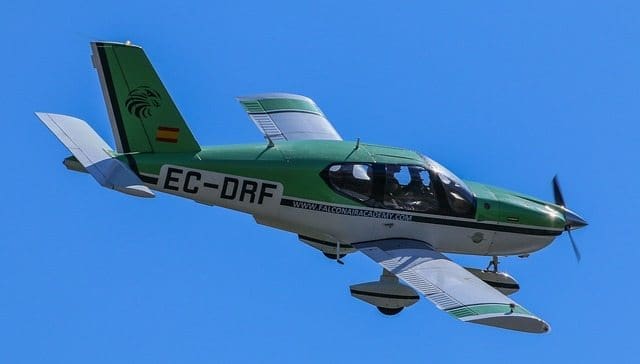Kenneth Brown
of The Clarion
After concerns over Kindersley’s proposed airport bylaw were raised, town council has opted to delay passing it.
The first reading of Bylaw 10-17, to regulate the Kindersley Regional Airport and to provide for airport authority, rules, regulations and fees, was given at a council meeting on Nov. 27.
The bylaw was up for second and third readings on Dec. 11.
But two delegates presented concerns with the proposed bylaw. Colin Bevan, who operates Kindersley Airspray, and Monte Sheppard, the chairperson for the Kindersley Flying Club, appeared at Monday’s meeting.
After hearing the concerns and receiving comments from other sources, council members decided to wait to give the second and third readings to the bylaw. They passed a resolution to hold a special meeting at the town office on Dec. 21 at 4 p.m.
The airport users have been asked to submit a proposal to address their concerns at that time.
[emember_protected for=”2″ custom_msg=’For more on this story, please see the Dec. 13 print edition of The Clarion.’]
Bevan asked council if the town consulted with any of the airport users before the bylaw first came to council. And he asked if the town had consulted with any of the five rural municipalities that contribute annualized funding to the facility.
He told council he only received three business days notice of the proposed bylaw.
Bevan noted that the bylaw appears to remove the airport’s current advisory board, so the ability for rural municipalities to present concerns would be gone. He said the municipalities contribute $85,000 to the airport each year in operating grants, and the revenue may disappear if the advisory board is removed. He said an advisory board helps provide continuity to future councils in Kindersley.
And as the operator of an air spray business, he said the new fee structure gives a competitive edge to other operators.
Bevan also expressed concern with the decision to start charging landing fees for all commercial and recreational aircraft. He noted that if any operator commits three infractions during a certain period, the person or business would be subject to a 12-month suspension under the new bylaw. “In my mind, it is shockingly excessive,” he said.
He provided town officials with examples of how airports in Swift Current, Lloydminster and Yorkton handle the fees. Bevan said due to the nature of his business, he could end up paying as much as $67,000 more a year to operate.
Mayor Rod Perkins told Bevan that the best way to avoid a suspension is to not violate the rules and regulations as often.
Councillor Dean Galbraith said the idea behind the new fee structure is to go with a cost recovery model, so people who use the airport the most have to pay more. He noted that it’s a similar model to other facilities and utilities in the municipality.
Councillor Elyse Moss said the process used by council is to give certain bylaws a first reading, and then the bylaw is advertised and the public is given an opportunity to comment on the bylaw to present concerns and feedback. She noted that the advisory board is not being removed, but certain language has been removed from the bylaw.
Sheppard said he pays rent on a lot, rent on the hanger he paid to build and an annual tie-down fee. He claimed that charging he and other members of the club landing fees is double dipping by charging landing fees to permanent, local aircraft.
He presented concerns regarding the new landing and tie-down fees, ambiguity of the bylaw and concerns with the advisory board. He, too, believed the board was to be removed and he said from the flying club’s perspective, “we don’t feel the board has been used to the fullest of its extent.”
He noted that the flying club owns the terminal building. When asked about the club’s membership, Sheppard said the club has four active members with their own aircraft and five active members who use a club-owned plane.
Council heard about the other benefits the club provides to the airport. The club sells fuel to transient aircraft and the proceeds are put back into the airport. Sheppard told council he believes the new bylaw will deter use of the airport, and it defeats the club’s mandate to promote use.
Galbraith said he pays taxes at his car and truck wash business. Those taxes give him the right to use the town’s water, but he also has to pay to use the water, he said. Airport users rent the space, but it is believed they should also pay to use the airport, he added.

